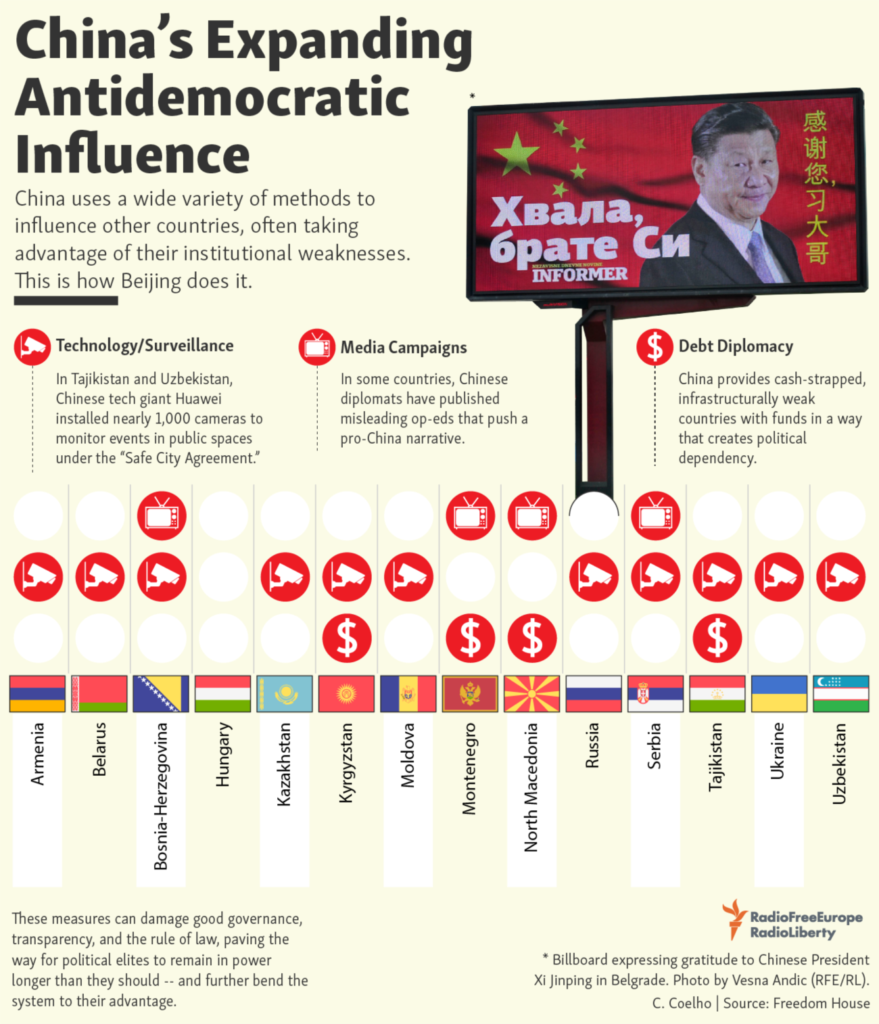
Leading Chinese scholars and foreign policy advisers have taken aim at the country’s “Wolf Warrior” diplomats and state media, saying their efforts to defend Beijing’s handling of the coronavirus pandemic are backfiring. A new wave of nationalistic sentiment has emerged in China as it makes its way on the path to recovery, with diplomats and state media outlets fanning the flames, the South China Morning Post reports.
“Some media outlets compare the progress made in China and in Europe in fighting against the epidemic, and they attribute [China’s relative success] to the difference in political systems,” said Yan Xuetong, one of China’s leading thinkers on foreign affairs and security, in an interview with Caixin on April 30.
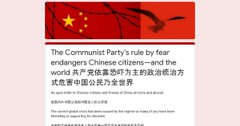 “This kind of rhetoric risks creating a backlash in some of the European countries still battling the outbreak. Any direct or indirect criticism of other countries’ political systems will only exacerbate the ideological conflict,” said Yan, an international relations professor with Tsinghua University and an adviser to the National Security Commission.
“This kind of rhetoric risks creating a backlash in some of the European countries still battling the outbreak. Any direct or indirect criticism of other countries’ political systems will only exacerbate the ideological conflict,” said Yan, an international relations professor with Tsinghua University and an adviser to the National Security Commission.
China uses a wide range of tactics, tools and techniques to project its sharp power and to undermine international norms, RFE/RL observes (above).
China’s ruling Communist Party’s aspirations for global hegemony require establishing dominance over key elements of the future global economy and stamping out support for liberal democratic norms at home and undermining them abroad, Bethany Allen-Ebrahimian writes for Axios.
“The challenge Beijing represents is not to Washington’s status in Asia, but to the nature of the global order’s predominant values,” Dan Tobin, a faculty member in China Studies at the National Intelligence University, wrote in recent congressional testimony. “While this rivalry differs in many respects from the Cold War, one of the most important differences is that it is a competition to define the rules and norms that will govern an integrated, deeply connected world rather than a world divided into competing camps.”
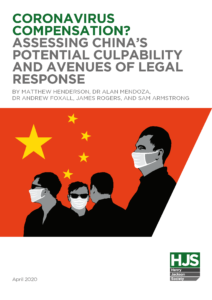 China has become a threat because its leaders are promoting a closed, authoritarian model as an alternative to democratic governance and free-market norms, former National Security Advisor H.R. McMaster writes for The Atlantic.
China has become a threat because its leaders are promoting a closed, authoritarian model as an alternative to democratic governance and free-market norms, former National Security Advisor H.R. McMaster writes for The Atlantic.
That COVID spread widely in December doesn’t make China’s initial response worse, notes AEI Resident Scholar Derek Scissors. An uncertain but considerable proportion of asymptomatic cases, even after virus identification, made early policy-making very difficult. The fault is in China’s refusal to tell any part of the truth since, so as to protect the party’s image. And in those who nonetheless treat the country as a success story, he writes.
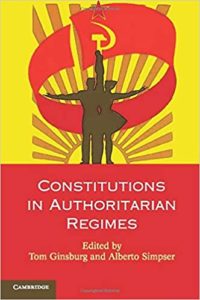 Today’s authoritarian regimes are increasingly facile in their engagement with international legal norms and institutions, deploying legal arguments with greater acuity, even as they introduce new forms of repression that are legally and technologically sophisticated, notes analyst Tom Ginsburg, co-author of Constitutions in Authoritarian Regimes.
Today’s authoritarian regimes are increasingly facile in their engagement with international legal norms and institutions, deploying legal arguments with greater acuity, even as they introduce new forms of repression that are legally and technologically sophisticated, notes analyst Tom Ginsburg, co-author of Constitutions in Authoritarian Regimes.
“We might expect that as authoritarian international law expands, it could be accompanied by a retreat of democracies from the pro-democratic international norms that have recently been ascendant,” he writes in Authoritarian Law?, an article for The American Journal of International Law. “We certainly observe an increasing emphasis on sovereignty among some democracies, including the United States and United Kingdom, with regard to security, trade, and borders. This may indicate less willingness to invest resources in the promotion and support of democracy abroad.”
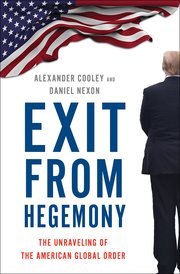 The world’s great powers have strong interests in defining and enforcing rules and institutions to govern the system and cope with crises when they arise, note analysts Thomas D. Lairson, David Skidmore, and Wu Xinbo. The need for systemic governance and management accentuates the importance of structural power, which is the ability to shape preferences about global rules, standards, norms, and systemic outcomes, they write for the Diplomat, explaining why the U.S campaign against Huawei backfired.
The world’s great powers have strong interests in defining and enforcing rules and institutions to govern the system and cope with crises when they arise, note analysts Thomas D. Lairson, David Skidmore, and Wu Xinbo. The need for systemic governance and management accentuates the importance of structural power, which is the ability to shape preferences about global rules, standards, norms, and systemic outcomes, they write for the Diplomat, explaining why the U.S campaign against Huawei backfired.
U.S. charges of China’s ideological incompatibility with international cooperation and global norms are not only unpersuasive to other countries, but they also suggest U.S. unwillingness to acknowledge Chinese interests or a Chinese role in global affairs, encouraging greater Chinese challenges to American leadership, Robert Ross writes for the Quincy Institute for Responsible Statecraft.
But other observers are less inclined to accept Beijing’s benign intent or to be as accommodating to the interests of the ruling Communist Party.
The existing liberal world order is rooted in norms intrinsically antagonistic to the organizing principles on which the CCP system is based and are thus an enduring threat to the regime’s legitimacy, argues Nadège Rolland, Senior Fellow in Political and Security Affairs at the National Bureau of Asian Research.
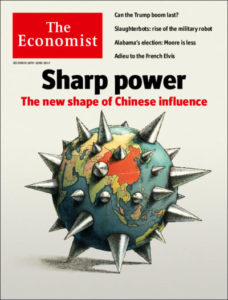 Whereas the West believes that the promotion of liberal democracy can help achieve global peace and prosperity, the CCP blames the global promotion of “so-called universal values” for conflict and disruption worldwide (from “color revolutions” in the former Soviet Union to chaos and violence in the Middle-East) – an obvious reflection of its own survival anxieties, she testified before a U.S.-China Economic and Security Review Commission virtual public hearing on “A ‘China Model’? Beijing’s Promotion of Alternative Global Norms and Standards.”
Whereas the West believes that the promotion of liberal democracy can help achieve global peace and prosperity, the CCP blames the global promotion of “so-called universal values” for conflict and disruption worldwide (from “color revolutions” in the former Soviet Union to chaos and violence in the Middle-East) – an obvious reflection of its own survival anxieties, she testified before a U.S.-China Economic and Security Review Commission virtual public hearing on “A ‘China Model’? Beijing’s Promotion of Alternative Global Norms and Standards.”
China’s vision for a new world order points to two main areas of priority for Beijing: the global South and the existing international institutions. In both areas, Beijing’s main objective is the weakening of liberal democratic norms, as a proxy for eroding U.S. influence and asserting China’s instead, she added.
RAND analyst Michael Mazarr encourages observers to consider “the fullness of the US-led post-war order,” which constitutes a rich complex of institutions, processes, and norms, notes former NED Penn Kemble fellow Ali Wyne, a nonresident senior fellow at the Atlantic Council and a nonresident fellow at the Modern War Institute. No less than Fu Ying, former chair of the foreign affairs committee of China’s National People’s Congress, concedes that the US “ has made great contributions to human progress and economic growth,” he writes for the Lowy Institute.
Reforming the institutions of international governance is unlikely to happen with blocking rival powers, according to Rosa Balfour, director of Carnegie Europe. But the crisis has also brought forward new understandings of what global public goods are: the environment, health, good governance. These can restart a conversation among coalitions and alliances of states, organizations, and global civil society with the goal of doubling down on efforts to rethink international cooperation, she writes, making the case that Europe still matters.
 In Exit from Hegemony: The Unraveling of the American Global Order (above), Alexander Cooley and Daniel Nexon identify three ways in which the primacy of the liberal international order is being eroded from above, laterally, and from below:
In Exit from Hegemony: The Unraveling of the American Global Order (above), Alexander Cooley and Daniel Nexon identify three ways in which the primacy of the liberal international order is being eroded from above, laterally, and from below:
- First, Russia and China have targeted the order, positioning themselves as revisionist powers by establishing alternative regional institutions and pushing counter-norms.
- Second, weaker states are hollowing out the order by seeking patronage and security partnership from nations outside of the order, such as Saudi Arabia and China. Even though they do not always seek to disrupt American hegemony, these new patron-client relationships lack the same liberal political and economic conditions as those involving the United States and its democratic allies.
- Third, a new series of transnational networks emphasizing illiberalism, nationalism, and right-wing values increasing challenges the anti-authoritarian, progressive transnational networks of the 1990s.
Since 2005, many post-Communist governments increasingly view Western norms as threatening their domestic authority and regime survival and have actively supported Russian-led initiatives to curtail such organizations and norms’ reach and influence, Cooley observes. As a result, the ecology of the post-Communist space has transformed from one where the liberal order was briefly dominant to one where new illiberal regional organizations, practices, and counternorms have flourished and now regularly interact with liberal counterparts.
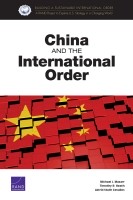
RAND
When it comes to Chinese leadership of international institutions, all nations must ask themselves: Are we prepared to risk another global crisis? If the answer is no, one place to start is June’s G7 meeting, the International Republican Institute’s Daniel Twining and Patrick Quirk contend.
The United States can leverage our G7 chairmanship to organize an international summit on governance solutions to resuscitate societies and economies in the wake of the COVID-19 pandemic. The initiative could generate new solutions rooted in accountability and transparency and draw a stark contrast for the world between the community of democracies focused on solving global problems and the autocracies seeking to profit from them, they write for the American Interest.
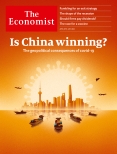 Western representatives charged with public diplomacy and regional engagement must resist the urge to decouple normative from geopolitical issues, adds Cooley, director of Columbia University’s Harriman Institute and a professor of political science at Barnard College. If the West were to reduce its support for liberal norms and a rule-based international order for the sake of political expediency, it would only hasten the erosion of its own normative standing and emphasize that we are now in world of competitive patronage dynamics where the highest bidder wins.
Western representatives charged with public diplomacy and regional engagement must resist the urge to decouple normative from geopolitical issues, adds Cooley, director of Columbia University’s Harriman Institute and a professor of political science at Barnard College. If the West were to reduce its support for liberal norms and a rule-based international order for the sake of political expediency, it would only hasten the erosion of its own normative standing and emphasize that we are now in world of competitive patronage dynamics where the highest bidder wins.
Instead, the onset of multipolarity, when it truly emerges, should be embraced with a clear sense of liberal democracy’s purpose and unique standing in the universe of competing norms and counternorms, he wrote in “Countering Democratic Norms,” an article for the NED’s Journal of Democracy.
See also ABC (Australia) interview with Alexander Cooley. POMEPS Podcast: Exit from Hegemony: A Conversation with Daniel Nexon.







